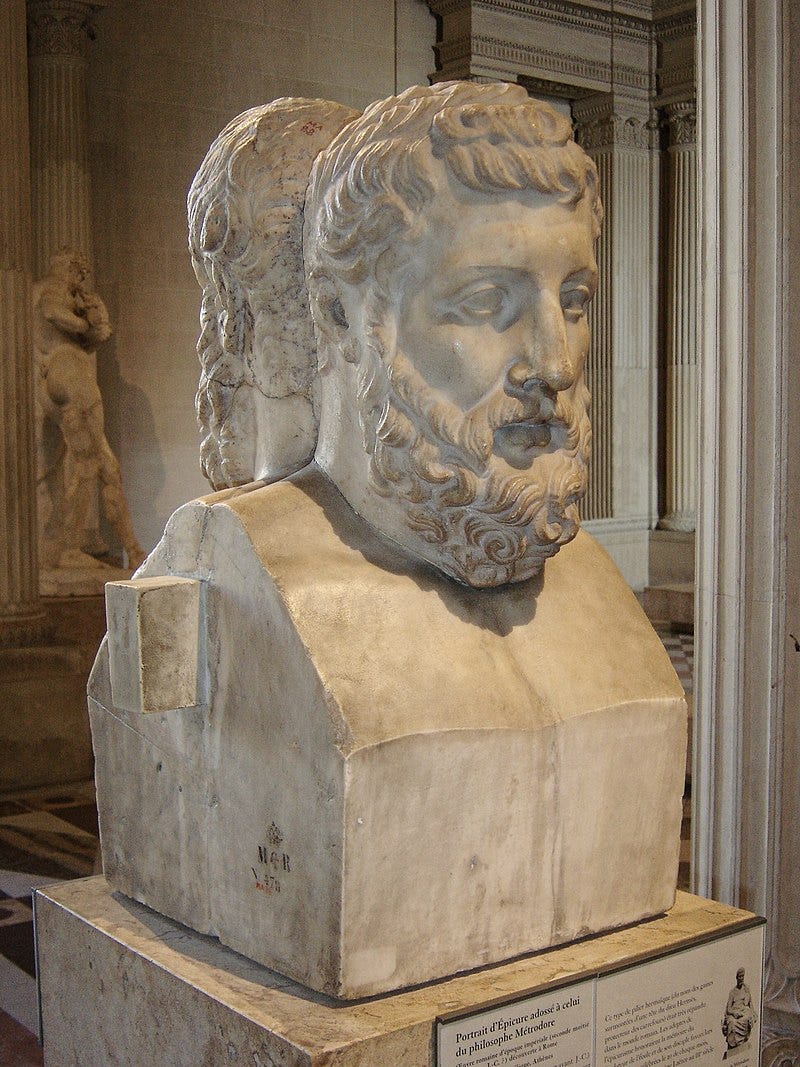Cicero Exposes the Fallacy of Virtue
Virtue cannot be the only good if it’s not even capable of being itself.
Although the current revival of Stoicism is largely focused on a modernized revision of ancient Stoicism that jettisons various Stoic dogmas that are near universally unpalatable to modern sensibilities, such as the universe is divine and providential, and that divination is valid because of the sympathies one part of the universe has for another. One dogma Modern Stoics cling to - and one as unsupported as the ones they reject - is the dogma that virtue is the only good.
The dogma sure sounds nice and inspirational. It makes for a great marketing pitch. Who wouldn’t want to be virtuous? Of course virtue is good - and the good is virtue! Nothing more to see here….
But there is more to see.
What is virtuous and what is good are mental fabrications. They do not exist in nature. They exist only in minds. Existing only in minds, they are subjective. There’s no such thing as anything that’s objectively good or virtuous. All of this is but opinion.
To illustrate that, here’s a little quote from Cicero, getting all wrapped up in “virtue.”
Leontion, that mere courtesan, who had the effrontery to write a riposte to Theophrastus – mind you, she wrote elegantly in good Attic, but still, this was the license which prevailed in the Garden of Epicurus. - De Natura Deorum i. 33/93
Leontion was either the wife (according to Seneca) or girlfriend of Metrodorus of Lampsacus, who was the second highest ranking philosopher in Epicurus’ Garden. Hostile sources, such as Cicero, describe her as a courtesan, hetaera, or concubine. This is not a virtuous thing to do if it’s not true, but let us grant that before becoming Metrodorus’ wife she had been a hetaera, which would help explain why she was so well educated, as few women in ancient Greek society other than hetaera received training in having highly sophisticated conversations.
Theophrastus was the second highest ranking philosopher in Aristotle’s Lyceum. He became the head of the Lyceum after Aristotle’s death - the period during which the Lyceum was at its zenith. It fell into decline starting with Theophrastus’ death. (Metrodorus pre-decesed Epicurus).
Even though Cicero concedes that Leontion wrote elegantly, he attacks her for writing at all. (She wrote several books). Because of her station in life it is unvirtuous for her - a philosopher in the Garden of Epicurus - to address some issue on which Theophrastus might be wrong.
Presumably, when Cicero wrote this he didn’t think he was saying anything controversial. He expected his readers to agree with it and take it as evidence of the unvirtuousness of Epicurus and his philosophy.
However, when I write about this incident, I have different expectations of my audience. I expect them to disagree with Cicero. I expect them to find Cicero guilty of misogyny. I also expect them to find Cicero guilty of a kind of philosophical authoritarianism, in that he finds it unacceptable for someone of Leontium’s station in life to question the claims of the head of the Lyceum, one of the greatest institutions of learning in ancient Greece. This also offends modern sensibilities.
So, my modern audience has a peferectly inverted view from that of Cicero and his audience about what is virtuous and what is vicious.
How do we explain this? Was Cicero mistaken? Or are we mistaken? What objective truth is there here? If you say that Cicero was just a product of his times, then how is it that what is true changes over time? What kind of truth is that?
If the concept of virtue has no objective ground to stand upon, but varies from person to person, how can it be the only good?
It’s not even capable of being the same thing as itself.




Cicero's conceit was the same as the modern academics - you aren't part of our club so what you say has no value. Whereas it is what is said, not who said it, that is the real matter; that tends to make one think her riposte was not easily answered.
The highest virtue is not virtue, and therefore really is virtue, but inferior virtue cannot let go of being virtuous and therefore is not virtue. - Lao Tzu